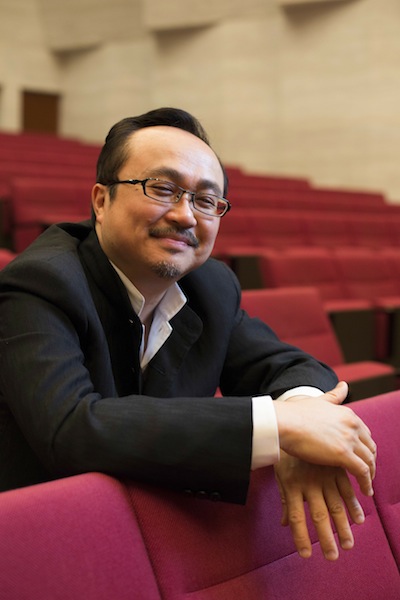Frost Chopin Festival opens with impressive program by Dang Thai Son
Miami’s new Frost Chopin Festival opened its doors Sunday evening at Maurice Gusman Concert Hall with a performance by Dang Thai Son.
After winning the Chopin Competition in Warsaw in 1980, the Vietnamese-born pianist cultivated a rather low-key career centered around teaching and competition adjudication. Nevertheless, in the past four decades, he has appeared in concerts across 40 countries.
Kevin Kenner, pianist and festival artistic director, expressed his joy at being able to present this Chopin Festival in Miami, bringing world-class musicians to perform and teach during the one-week academy, where all lessons and masterclasses will be open to the public.
(The Chopin Festival is presented by the Frost School of Music with the support of the Chopin Foundation in the U.S., and in collaboration with the Friends of Chamber Music of Miami.)
Son’s program included works by Schubert, Chopin, Paderewski, andLiszt. With each composition, Son displayed the highest caliber of intellectual clarity and artistic elegance. There was never a moment of confusion in his interpretation as he showed a patient care for every note, guiding the listeners through the music.
Schubert’s Allegretto in C minor, D. 915 was written only one month after Beethoven’s death. Son approached the first unison statement with a simplicity of expression. The pianist played with a focused sound, moderate rubato and skillful oscillations of harmonic tension and resolution.
He continued to Schubert’s 12 German Dances, D. 790. These vignettes displayed Son’s delicate touch, command of soft dynamics and transparent textures. The playful nature of these dances intertwined with sophisticated lyricism was further highlighted by Son’s surgical pedaling.
Considered one of Chopin’s foremost interpreters, Son executed the F-sharp major Barcarolle with a sense of breadth that is rarely heard nowadays, remaining in a nocturne-like state for the most part of the piece. Above the lilting gondola motion, the sustained dynamic layering and delayed crescendi induced a feeling of stillness, with the exception of the final climax, which soared effectively.
A selection of mazurkas (Op. 17, no. 1 and 4, and Op. 7, no. 3) followed. Son graciously floated between improvisation and precision of rhythm. These stylized folk dances showcased the pianist’s imagination and impeccable ear. Crisp embellishments, impassioned upsurges, and pearly flourishes permeated the performance.
The somewhat sinister four-note opening figuration of the B-flat minor Scherzo, Op. 31 made for a shift of ambiance, later juxtaposed by the thunderous trills in the bass. The demanding passages flowed easily under his nimble fingers. By not giving in to instantaneous flashes, Son’s structural lucidity made him appear like a sonic architect.
Perhaps one of the most versatile personalities of classical music, Paderewski has left behind a legacy not only in piano playing, but also in politics, philanthropy, and composition. Three selections from his Op. 16, the Menuet in G major and the Krakowiak in B-flat major opened the second half. Son captured the freshness of Paderewski’s music, at times departing from expected harmonic layouts (Legend, Op. 16) and other times reverting to charming archaic forms (Menuet Op. 14).
The concert ended with Reminiscences of Norma, S. 394, where Liszt has incorporated seven themes from Bellini’s tragedia lirica. The result was a triumphant, condensed pianistic fantasy of massive proportions. Son’s execution encapsulated the drama and grandeur of the opera. He held nothing back as he washed over the instrument displaying his technical prowess in the “four-hands” dense score. His laser-focused drive did not indulge in individual moments but rather allowed for the polarized textures and melodies to interweave into a sort of symphonic pianism.
The nearly-sold out audience brought Son back for four curtain calls. He chose to come full circle with the slow movement from Schubert’s B-flat major Piano Sonata as an encore.
The next concert in the Frost Chopin Festival is “Improvisations on Classical Tunes” by Shelly Berg 7:30 p.m. Monday at Gusman Concert Hall. piano.frost.miami.edu
Posted in Performances
Leave a Comment
Mon Jun 25, 2018
at 11:22 am
No Comments





